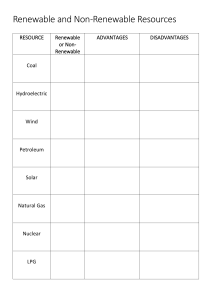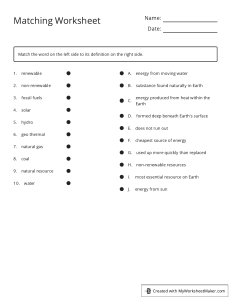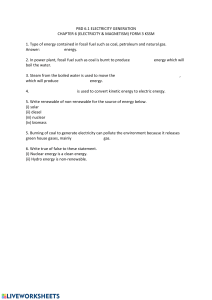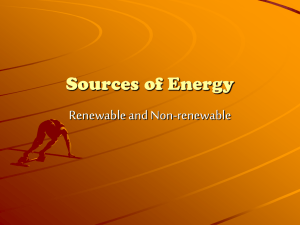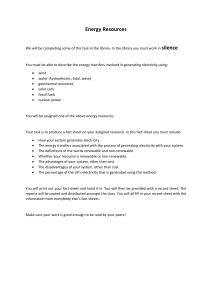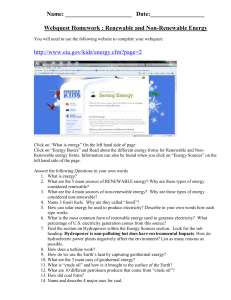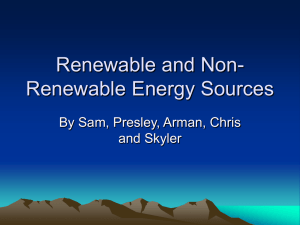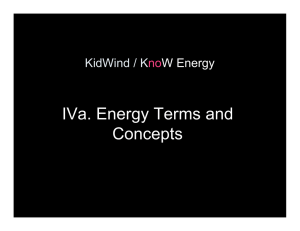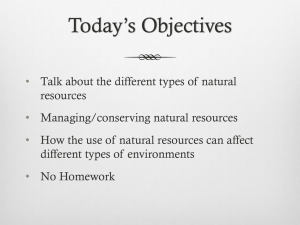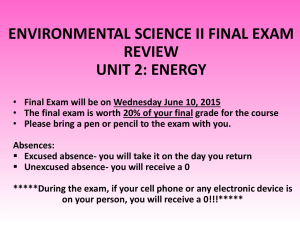Comparing Methods of generating electricity
advertisement
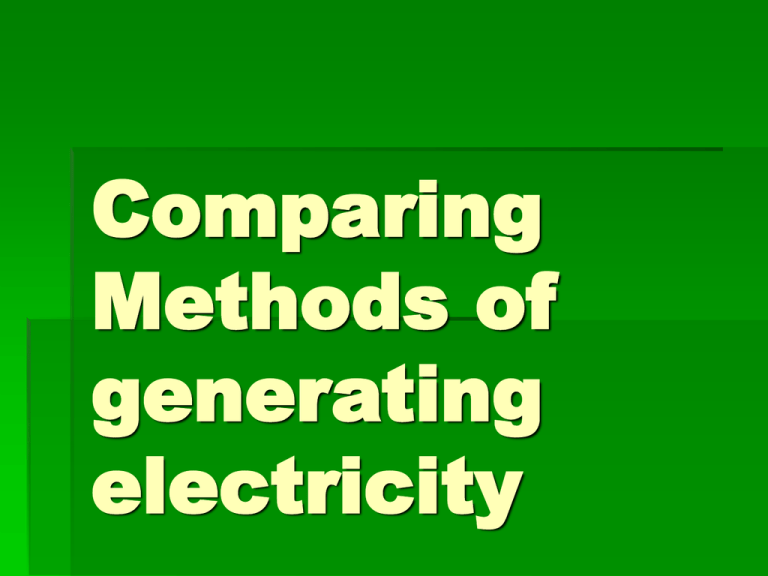
Comparing Methods of generating electricity Energy sources can be grouped into two broad categories. Non-renewable energy sources and renewable sources. Renewable resources are sources that can be replenished by natural processes in a relatively short time Non-renewable energy are sources that are limited and cannot be replenished naturally Pro’s and Cons Nonrenewable Can generate energy quickly Fairly inexpensive Produces large amounts energy with little fuel Releases pollutants into the atmosphere Hazardous to humans in some cases Renewable Uses natural energy Don’t have to worry about the resource running out Doesn’t create green house gases and pollution Unpredictable sources Sometimes expensive to generate energy through sources Sometimes could cause changes to animal lifestyles Electrical Energy Production In Canada Worlds largest producer of hydroelectricity, Ex; Niagara Falls Large part of energy comes from nonrenewable resources, Ex; Coal, Uranium etc. P.E.I was dependent on outside electricity because of limited sources Hydro Coal Nuclear Oil and Gas Other Electricity generated in Canada in 2007 A Sustainable Choice Sustainability means using resources at a rate that can be maintained indefinitely Since 66.6% of our energy is fossil fuels and non-renewable resources, we may never be able to achieve full sustainability. Smaller actions such as turning off the lights when you leave the room can save the amount of energy you used. Hydro Nuclear Gases Coal Oil Other Energy generated worldwide in 2007 Relating to the Real World • Most houses now use solar panels to heat water. • Hydrogen best choice of fuel in future because it • • can be burned like other fuels or converted into electricity. Save water by taking shorter showers and low flow toilets. Energy is a big part of our lives and we use it for most tasks.
